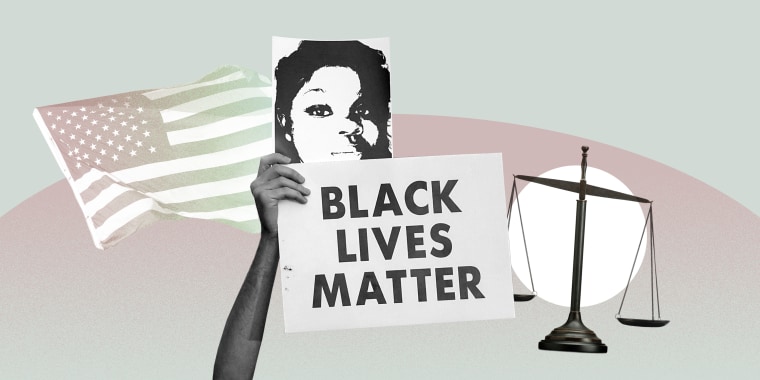In this personal essay, Leila Roker reflects on how Breonna Taylor's murder trial affects her a Black American woman.
Breonna Taylor’s murder is any Black woman’s worst nightmare.
While she has become a touchstone in the Black Lives Matter movement, she still hasn’t received the justice she deserves. Despite the outpouring of social media posts, hashtags and art made in her honor, Breonna Taylor's case has been dissected and scrutinized in the media in a dehumanizing way that is unparalleled. To decide whether someone’s previous actions or social circles can determine the legitimacy of their murder is not how we should be evaluating other humans.
Black women find ourselves as a double minority, which can be difficult at times and feel like an unbearable burden at other times. Caught between these two identities, we often have to choose which to represent at any moment. For many Black women in Western cultures, we often find ourselves struggling to be desired in professional, romantic and academic settings. This even carries over into the Black community as well, which is why it is incredibly disheartening to see prominent Black figures such as Charles Barkley deem Taylor’s murder incomparable to Black male lives lost earlier this year.
A considerable amount of dances, memes and merchandise have been produced in Taylor’s name, but while the creators may have respectable intentions, they seldom explain how they contribute to any form of justice or financial support for her family. While some of these efforts have value, others, like making a TikTok dance for the death of an innocent woman, promote the meme-ification of a human life.
Murder (especially committed by the police, who are supposed to be protecting citizens) should not be rationalized. A person is so much more than the moment leading up to their death. Breonna Taylor was an EMT and a goal-oriented person. Her apartment was decorated with Post-It notes, all of them scribbled with her aspirations for the coming year. Among them, her hope to have a baby with her boyfriend this year.
The case (the details of which the Louisville police have still not fully disclosed) claims Breonna Taylor was raided in connection to her ex-boyfriend Jamarcus Glover. Glover, who has had several run-ins with the police in the past, was surveilled going to Breonna Taylor’s apartment on multiple occasions. Taylor had ended her relationship with Glover a month prior, but police were led to believe there was evidence in her house that could help in his conviction. Breonna Taylor’s family lawyer, Sam Aguiar, stated that no drugs or cash were found at her apartment after the raid.
What’s so troubling for many about this case is the way our justice system is handling it. The grand jury indicting only one officer from the crime on "wanton endangerment" in her white neighbor’s apartment is an extra sting. Wanton endangerment, according to the Kentucky statute, is when someone “under the circumstances manifesting extreme indifference to the value of human life, he wantonly engages in conduct which creates a substantial danger of death or serious physical injury to another person.” This charge both alleges that Breonna Taylor’s apartment was dangerous, and that it was worth more than her life.
There are so many shocking and heart-wrenching factors that have been revealed about this case. The blatant privilege is among them — one of the Louisville cops in Breonna Taylor’s case threatened a lawsuit over being called a murderer while another is fundraising for his retirement. For me, in reading the details of the case, what I can’t seem to get out of my head are the messages this case sends to my community: “Your only value is only determined by your worst actions” and “Your worst romantic partner defines you.” If all of our lives were quantified by our worst moments, maybe we wouldn’t be so critical of others.


